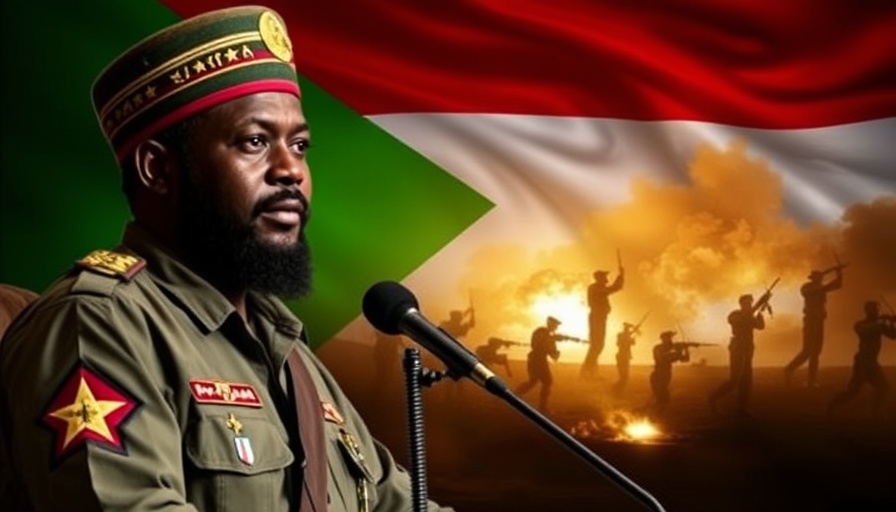
Understanding the Shifts in Military Leadership and Governance in Sudan
In a significant move that reverberates throughout Africa, Sudan's military leader, General Abdel Fattah al-Burhan, has undertaken a sweeping reform of the armed forces to tighten his grip on the country. This alteration of military hierarchy not only aims at stabilizing his power amid continuing unrest but also shapes the future dynamics of governance in Sudan.
The military shake-up comes at a time when Sudan faces critical challenges: economic turmoil, social unrest, and post-revolution political fragmentation. Burhan's strategic appointments signal a desire to consolidate military allegiance while presenting a more united front to both domestic and international observers. It appears that this reform is aimed at quelling dissent and projecting strength to bolster the country's fragile economy, which has been under severe strain since the political turmoil began.
The Implications for Regional Geopolitics
This strategic maneuvering of the Sudanese military could have profound implications for geopolitics in Africa. With tensions rising across the Horn of Africa, regional stability is paramount. The alterations within Burhan's command structure may affect military cooperation agreements, particularly with allies such as Egypt and the United Arab Emirates, both of whom have vested interests in Sudan's stability.
Moreover, how Burhan's policies are perceived on the global stage will be crucial. For investors and policymakers, understanding the implications of military reform is vital given Sudan’s position in the wider context of African diplomacy and trade relations. As the international community navigates the complexities of engaging with Sudan, the evolving military landscape will play a pivotal role in shaping future foreign relations.
Key Considerations for Investors and Policymakers
For business leaders and investors focusing on Africa’s potential, these developments underscore a need for vigilance. The emphasis on military consolidation can represent both risk and opportunity—a strong military might ensure security, but it may also entrench authoritarian governance. Thus, stakeholders are encouraged to closely monitor how Burhan’s strategies unfold and their effects on the Sudanese economy and the broader African financial markets.
In conclusion, the recent military shake-up in Sudan is more than a governance issue; it is a critical juncture that reflects complex socio-economic tensions. Investors, policymakers, and academics alike must engage with these developments to anticipate their impacts not just on Sudan, but on the larger African continent.
 Add Row
Add Row  Add
Add 


Write A Comment